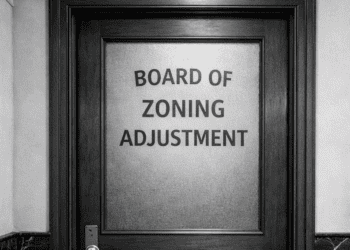Parents are basically all home-schoolers now due to the coronavirus pandemic. With schools closed for nearly all students in the country, anecdotal reports show many families saying that their children are more relaxed, happier, more engaged, and learning like never before. In fact, a new national survey of 510 parents of school-age children found that most families have a more favorable view of homeschooling as a result of their experiences with the COVID-19 school shutdowns.
What effects could a shift toward mass homeschooling have on society? Existing studies suggest homeschoolers generally fare better academically and socially than their peers in conventional schools. But new data suggest breaking away from the factory-model school system could also lead to more technological innovation. Here’s how.
Our first-of-its-kind study, published recently as a working paper, uses publicly-available data from a half-century to examine the effects of state-level compulsory schooling laws on innovation in the United States as measured by patents per capita and worker productivity.
Between 1852 and 1929, all 50 states and Washington, D.C., passed compulsory schooling laws. The staggered timing of these compulsory schooling laws set up a natural experiment for researchers to explore the effects of structured schooling on outcomes such as innovation over time.
We found significant reductions in patents per capita starting three decades after states passed compulsory schooling laws, which is when students affected by the policies would have been in their mid-40s, about the prime age for patenting activity. We also found some evidence to suggest that compulsory schooling laws reduced worker productivity over time. But why?
Compulsory schooling laws could have changed the nature and structure of U.S. education by pressuring many families to transition from unstructured and home-based education to factory-model schooling.
As John Taylor Gatto, an author and teacher, has argued, the structured and compulsory school system in the U.S. was adopted from the Prussian school system, which was created for the explicit purpose of delivering “obedient soldiers to the army” and “well-subordinated clerks to industry.” Capturing the sentiment that would later be described by Gatto, a German philosopher by the name of Johann Gottlieb Fichte famously said in 1807 that “schools must fashion the person and fashion him in such a way that he simply cannot will otherwise than what you wish him to will.”
Echoing the idea of the factory model of schooling, education historian Kevin Currie-Knight explained that schools historically “inculcated students with habits that would fit them for industrial wage work,” which may inhibit creative pursuits. Economists Samuel Bowles and Herbert Gintis similarly argued that the father of American public education, Horace Mann, “was a supporter of the industrial system” and that public schools were meant to train students to take “on as their own the values and objectives of those in authority.”
Relative to self-directed and child-centered home education, compulsory government schooling could theoretically crush creativity and stifle innovation. The highly structured nature of formal schooling could inhibit creative thinking through the use of uniform curriculum, teaching to standardized tests, and policies that discipline even minor forms of disobedience.
In formal school settings, children are often pressured to believe that good grades, a clean disciplinary record, and favor by authority figures is the key to long-term success. Because grades reflect a student’s ability to regurgitate material presented by teachers, students are incentivized to memorize the information that is deemed important by the adults. Standardized testing further discourages creative thinking by forcing children to hyperfocus on tested material and choose the “right” answer.
This focus on uniform curriculum and pleasing authority figures hinders children’s abilities to direct their own educational pursuits. The system of formal schooling could, therefore, stifle innovative thinking in both the short and long-run relative to a system of unstructured or home-based education.
Although more empirical evidence is needed on the topic, it is theoretically plausible that mass homeschooling could unlock creative thinking and technological innovation. Allowing all students to pursue their passions may not create obedient factory workers, but that is okay. The industrial era is long gone. Maybe we should put the factory model school system behind us too.










What Missouri can learn from Kansas’s budget crisis